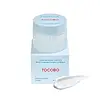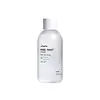What's inside
What's inside
 Key Ingredients
Key Ingredients

 Benefits
Benefits

 Concerns
Concerns

No concerns
 Ingredients Side-by-side
Ingredients Side-by-side

Water
Skin ConditioningGlycerin
HumectantSqualane
EmollientCoco-Caprylate/Caprate
EmollientPolyglyceryl-3 Methylglucose Distearate
EmulsifyingCaprylic/Capric Triglyceride
MaskingPentylene Glycol
Skin ConditioningPropanediol
SolventPolyglyceryl-3 Distearate
EmulsifyingCyclohexasiloxane
Emollient1,2-Hexanediol
Skin ConditioningButylene Glycol
HumectantDiphenyl Dimethicone
EmollientDiphenylsiloxy Phenyl Trimethicone
Skin ConditioningCetearyl Olivate
Sorbitan Olivate
EmulsifyingHydrogenated Coco-Glycerides
EmollientCetearyl Alcohol
EmollientGlyceryl Stearate
EmollientPolymethylsilsesquioxane
Glucose
HumectantChlorella Vulgaris Extract
Skin ConditioningButyrospermum Parkii Butter
Skin ConditioningHydroxyacetophenone
AntioxidantSodium Polyacrylate Starch
AbsorbentAcrylates/C10-30 Alkyl Acrylate Crosspolymer
Emulsion StabilisingFructose
HumectantFructooligosaccharides
HumectantTromethamine
BufferingParfum
MaskingGlyceryl Stearate Citrate
EmollientPanthenol
Skin ConditioningHydroxyethyl Acrylate/Sodium Acryloyldimethyl Taurate Copolymer
Emulsion StabilisingHydrogenated Lecithin
EmulsifyingSodium Phytate
Xanthan Gum
EmulsifyingStearic Acid
CleansingHyaluronic Acid
HumectantEthylhexylglycerin
Skin ConditioningBeta-Glucan
Skin ConditioningCeramide NP
Skin ConditioningHydrolyzed Hyaluronic Acid
HumectantCeramide Ns
Skin ConditioningCholesterol
EmollientPhytosphingosine
Skin ConditioningSodium Hyaluronate
HumectantCeramide AP
Skin ConditioningCeramide As
Skin ConditioningCeramide EOP
Skin ConditioningWater, Glycerin, Squalane, Coco-Caprylate/Caprate, Polyglyceryl-3 Methylglucose Distearate, Caprylic/Capric Triglyceride, Pentylene Glycol, Propanediol, Polyglyceryl-3 Distearate, Cyclohexasiloxane, 1,2-Hexanediol, Butylene Glycol, Diphenyl Dimethicone, Diphenylsiloxy Phenyl Trimethicone, Cetearyl Olivate, Sorbitan Olivate, Hydrogenated Coco-Glycerides, Cetearyl Alcohol, Glyceryl Stearate, Polymethylsilsesquioxane, Glucose, Chlorella Vulgaris Extract, Butyrospermum Parkii Butter, Hydroxyacetophenone, Sodium Polyacrylate Starch, Acrylates/C10-30 Alkyl Acrylate Crosspolymer, Fructose, Fructooligosaccharides, Tromethamine, Parfum, Glyceryl Stearate Citrate, Panthenol, Hydroxyethyl Acrylate/Sodium Acryloyldimethyl Taurate Copolymer, Hydrogenated Lecithin, Sodium Phytate, Xanthan Gum, Stearic Acid, Hyaluronic Acid, Ethylhexylglycerin, Beta-Glucan, Ceramide NP, Hydrolyzed Hyaluronic Acid, Ceramide Ns, Cholesterol, Phytosphingosine, Sodium Hyaluronate, Ceramide AP, Ceramide As, Ceramide EOP
Water
Skin ConditioningGluconolactone
Skin ConditioningPropanediol
Solvent1,2-Hexanediol
Skin ConditioningDipropylene Glycol
HumectantSodium Hydroxide
BufferingSodium Hyaluronate
HumectantAlthaea Rosea Flower Extract
Skin ConditioningEnantia Chlorantha Bark Extract
Skin ConditioningPanthenol
Skin ConditioningPolyglyceryl-10 Laurate
Skin ConditioningButylene Glycol
HumectantEthylhexylglycerin
Skin ConditioningSodium PCA
HumectantPentylene Glycol
Skin ConditioningBeta-Glucan
Skin ConditioningCaprylyl Glycol
EmollientOleanolic Acid
Skin ConditioningTocopherol
AntioxidantCaprylic/Capric Triglyceride
MaskingPistacia Lentiscus Gum
MaskingHydrogenated Lecithin
EmulsifyingPhenethyl Alcohol
MaskingWater, Gluconolactone, Propanediol, 1,2-Hexanediol, Dipropylene Glycol, Sodium Hydroxide, Sodium Hyaluronate, Althaea Rosea Flower Extract, Enantia Chlorantha Bark Extract, Panthenol, Polyglyceryl-10 Laurate, Butylene Glycol, Ethylhexylglycerin, Sodium PCA, Pentylene Glycol, Beta-Glucan, Caprylyl Glycol, Oleanolic Acid, Tocopherol, Caprylic/Capric Triglyceride, Pistacia Lentiscus Gum, Hydrogenated Lecithin, Phenethyl Alcohol
 Reviews
Reviews

Ingredients Explained
These ingredients are found in both products.
Ingredients higher up in an ingredient list are typically present in a larger amount.
1,2-Hexanediol is a synthetic liquid and another multi-functional powerhouse.
It is a:
- Humectant, drawing moisture into the skin
- Emollient, helping to soften skin
- Solvent, dispersing and stabilizing formulas
- Preservative booster, enhancing the antimicrobial activity of other preservatives
Beta-Glucan is a polysaccharide. It can be derived from the cell walls of seaweed, oats, yeast, and fungi. It hydrates the skin and helps boost your skin's natural barrier.
As an antioxidant, beta-glucan helps fight free-radicals. Free-radicals are molecules that may damage your skin cells, such as pollution.
Studies show this ingredient may be an effective wrinkle reducer as it can deeply penetrate into skin. It has also been show to help with wound healing.
Learn more about Beta-GlucanButylene Glycol (or BG) is used within cosmetic products for a few different reasons:
Overall, Butylene Glycol is a safe and well-rounded ingredient that works well with other ingredients.
Though this ingredient works well with most skin types, some people with sensitive skin may experience a reaction such as allergic rashes, closed comedones, or itchiness.
Learn more about Butylene GlycolThis ingredient is an emollient, solvent, and texture enhancer. It is considered a skin-softener by helping the skin prevent moisture loss.
It helps thicken a product's formula and makes it easier to spread by dissolving clumping compounds.
Caprylic Triglyceride is made by combining glycerin with coconut oil, forming a clear liquid.
While there is an assumption Caprylic Triglyceride can clog pores due to it being derived from coconut oil, there is no research supporting this.
Learn more about Caprylic/Capric TriglycerideEthylhexylglycerin (we can't pronounce this either) is commonly used as a preservative and skin softener. It is derived from glyceryl.
You might see Ethylhexylglycerin often paired with other preservatives such as phenoxyethanol. Ethylhexylglycerin has been found to increase the effectiveness of these other preservatives.
Hydrogenated Lecithin is created from the hydrogenation of lecithin (a group of phospholipids). Hydrogenation is a chemical reaction between hydrogen and another element.
This ingredient is an emollient and emulsifier. As an emollient, it helps soften skin by trapping moisture within. As an emulsifier, it prevents oil and water ingredients from separating.
Panthenol is a common ingredient that helps hydrate and soothe the skin. It is found naturally in our skin and hair.
There are two forms of panthenol: D and L.
D-panthenol is also known as dexpanthenol. Most cosmetics use dexpanthenol or a mixture of D and L-panthenol.
Panthenol is famous due to its ability to go deeper into the skin's layers. Using this ingredient has numerous pros (and no cons):
Like hyaluronic acid, panthenol is a humectant. Humectants are able to bind and hold large amounts of water to keep skin hydrated.
This ingredient works well for wound healing. It works by increasing tissue in the wound and helps close open wounds.
Once oxidized, panthenol converts to pantothenic acid. Panthothenic acid is found in all living cells.
This ingredient is also referred to as pro-vitamin B5.
Learn more about PanthenolPentylene glycol is typically used within a product to thicken it. It also adds a smooth, soft, and moisturizing feel to the product. It is naturally found in plants such as sugar beets.
The hydrophilic trait of Pentylene Glycol makes it a humectant. As a humectant, Pentylene Glycol helps draw moisture from the air to your skin. This can help keep your skin hydrated.
This property also makes Pentylene Glycol a great texture enhancer. It can also help thicken or stabilize a product.
Pentylene Glycol also acts as a mild preservative and helps to keep a product microbe-free.
Some people may experience mild eye and skin irritation from Pentylene Glycol. We always recommend speaking with a professional about using this ingredient in your routine.
Pentylene Glycol has a low molecular weight and is part of the 1,2-glycol family.
Learn more about Pentylene GlycolPropanediol is an all-star ingredient. It softens, hydrates, and smooths the skin.
It’s often used to:
Propanediol is not likely to cause sensitivity and considered safe to use. It is derived from corn or petroleum with a clear color and no scent.
Learn more about PropanediolSodium Hyaluronate is hyaluronic acid's salt form. It is commonly derived from the sodium salt of hyaluronic acid.
Like hyaluronic acid, it is great at holding water and acts as a humectant. This makes it a great skin hydrating ingredient.
Sodium Hyaluronate is naturally occurring in our bodies and is mostly found in eye fluid and joints.
These are some other common types of Hyaluronic Acid:
Learn more about Sodium HyaluronateWater. It's the most common cosmetic ingredient of all. You'll usually see it at the top of ingredient lists, meaning that it makes up the largest part of the product.
So why is it so popular? Water most often acts as a solvent - this means that it helps dissolve other ingredients into the formulation.
You'll also recognize water as that liquid we all need to stay alive. If you see this, drink a glass of water. Stay hydrated!
Learn more about Water